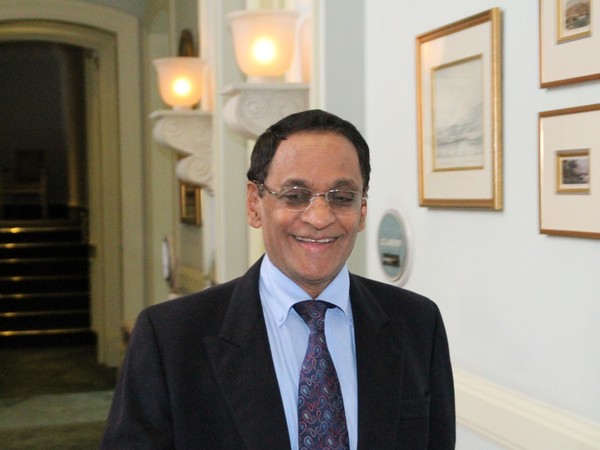The Foreign Affairs, Regional Integration and International Trade Minister of Mauritius, Seetanah Lutchmeenaraido, has restated the need for improved integration of trade across the Sub-Sahara Africa governments as a strategic option of bringing inclusive development to their people.
The minister gave the advice on Tuesday in Mauritius at the opening session of the 24th Session of the Inter-Governmental Committee of Experts, ICE, of Southern Africa.
Lutchmeenaraido pointed out that Africa must first believe in itself with political leaders giving the right message that “we can do it. We can stand on our own feet; that South- South cooperation is a reality; that we can work together in a win-win situation with mutual respect for each other.”
Most importantly, he charged African leaders and government on the need to trade more with each other if the continent is to emerge as a powerful continent in the next century.
He said: “We have been ignored and colonized for so long that we have come to the conclusion that probably Africa is not for tomorrow and that the continent will have to wait for the millennium to emerge. This is not true.
“If we want to emerge as a powerful continent then we have to stop behaving like victims but as builders of tomorrow. If we develop this attitude that we can do it; that we have the resources to do it and that the learning process will not be that longest time, then we can emerge. We have to trade more with each other than what is currently obtaining”, the minister added.
Lutchmeenaraido explained that that Africa would not move ahead if its people continue to ‘stay in this mentality of being victims of colonization; victims of economic rape’.
To support his stance, he shared with over 80 participants, including senior Southern African government officials, how Mauritius as a country moved from being a poor country when it gained its independence in 1968 from Great Britain to being a successful country that provides universal education and health to all her citizens.
He expatiated: “We have learned to move from an island which was condemned to be a failed state to what we are now today. We survived because there was no-one on whom to rely on. We had to learn the hard way of discipline and hard work.
“We moved from being a one-crop economy (sugarcane) into tourism, export processing zones for industrial production, then became a financial center. We diversified in a big way and in 2014 we reinvented the whole economy,” Lutchmeenaraido added.
Mauritius is the new chair of the Inter-Governmental Committee of Experts (ICE) of Southern Africa after succeeding Zimbabwe as chairman.
In his remarks, Zimbabwe’s representative at the meeting and a Principal Director in the Ministry of Finance and Economic Development, Z. Churu, pointed out that industrialization and strengthening regional integration remained the rallying points in Southern Africa as the region strives to extricate itself from poverty and under-development.
According to him, the adoption of the African Continental Free Trade Area, AfCFTA, in February in Kigali this year buttressed and accelerated the integration agenda through boosting industrialization and trade by complementing efforts under the Tripartite Free Trade Area.
Churu said: “Front loading industrialization as a platform for value addition and beneficiation, the development of domestic linkages and the creation of jobs is imperative and the blue economy can anchor such endeavors through its various development levers many of which we will interrogate during this ICA.”
The 2018 ICE had the theme ‘The Blue Economy, Inclusive Industrialization and Economic Development in Southern Africa’ with participants focusing their discussions on opportunities and challenges presented by the blue economy as a strategic resource that can anchor development in the region and help address poverty, inequality and unemployment.






